Survey: Can vertical series help women build healthier relationships?
Whether we choose a series to watch with friends, family, or just to unwind after a long day, entertainment serves a purpose. We laugh, we hope, we feel deeply, we relive memories—and sometimes we even learn something new about ourselves. Maybe it’s How to Lose a Guy in 10 Days for a girls’ night in, The Holiday on Christmas Eve, or Twilight for a cozy stay-at-home evening. For decades, people have connected to characters on screen, seeing reflections of their own lives in storylines and drawing on them when facing real-world challenges.
Streaming platforms brought this experience into our homes, making cinematic storytelling accessible anytime and anywhere. But now, entertainment has evolved even further. Viewers are no longer tied to theaters or even TVs — they’re consuming shows in bite-sized, mobile-native formats designed for today’s fast-paced lives. This raises a fascinating question: can vertical series become more than quick entertainment? Could they actually help us process emotions, navigate relationships, and make better life choices?
As the team behind My Drama, the #1 vertical streaming service among American and European players, we wanted to explore this. According to Variety, U.S. demand for vertical storytelling is strongest among women aged 30–60. To better understand this influential cohort, we surveyed 4,500 American women about their viewing habits, then discussed the findings with Dr. Isabelle Morley, an EFT-certified couples therapist. Here’s how this emerging storytelling format may shape our emotions—and even our relationships.
Note: Vertical series are cinematic, phone-first shows made up of short, 1–2 minute episodes packed with cliffhangers and hooks to grab viewers from the very first seconds. They’re designed for maximum impact in minimal time, perfectly fitting into any schedule — whether it’s a coffee break, a commute, or winding down before bed.
Viewership habits
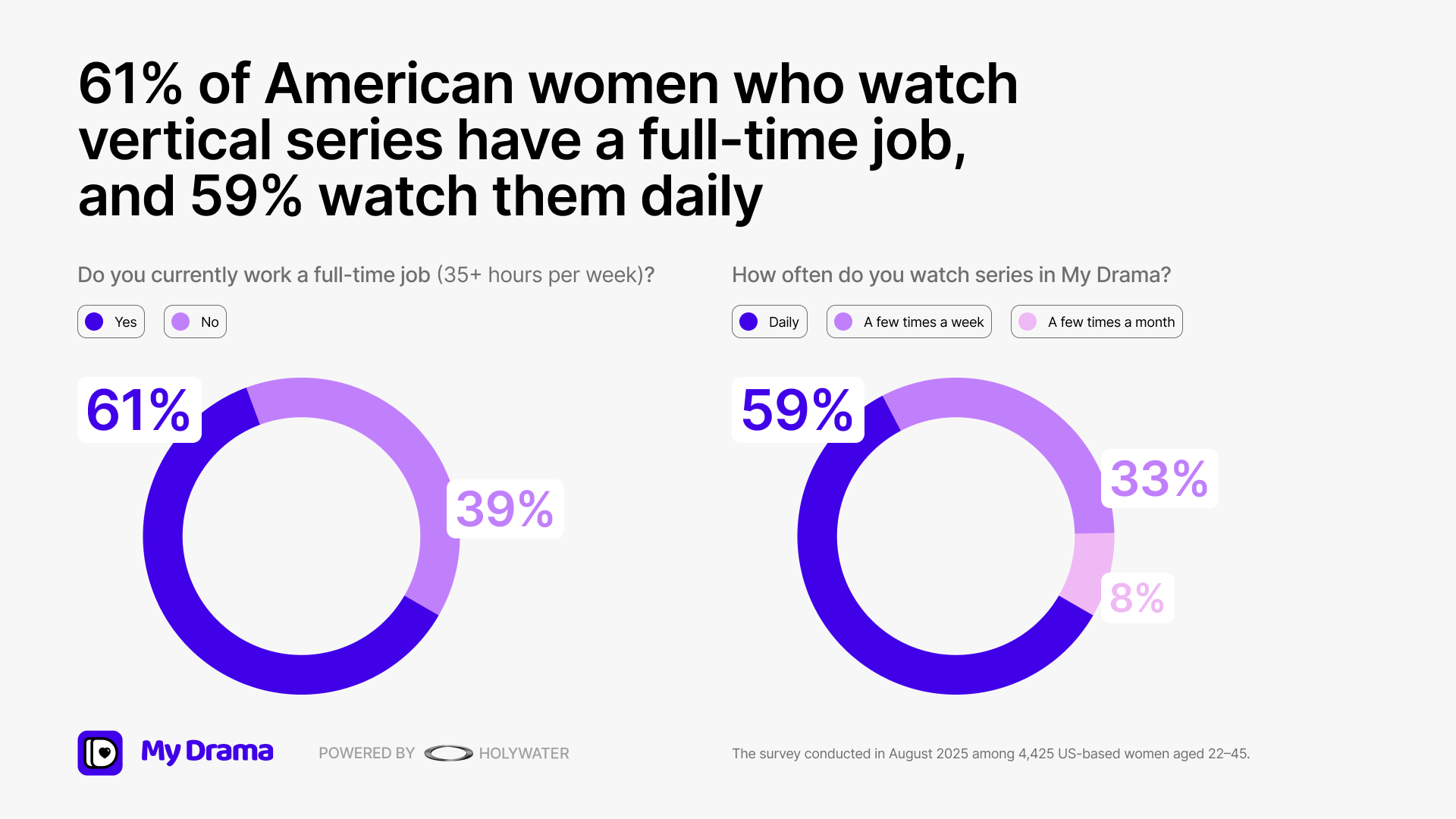
Vertical series fit naturally into daily routines. In 5–10 minutes—on a break or commute—viewers get short, tightly plotted episodes with rich characters and more twists than many traditional TV series or films.
Looking at audience profile, most viewers work full-time (61%), and many watch daily (59%). This pattern supports our hypothesis: the vertical fast-paced format serves busy schedules without sacrificing depth or momentum. Just as importantly, vertical series feel like a personal indulgence—content you can dip into anytime for a few minutes of quality me-time.
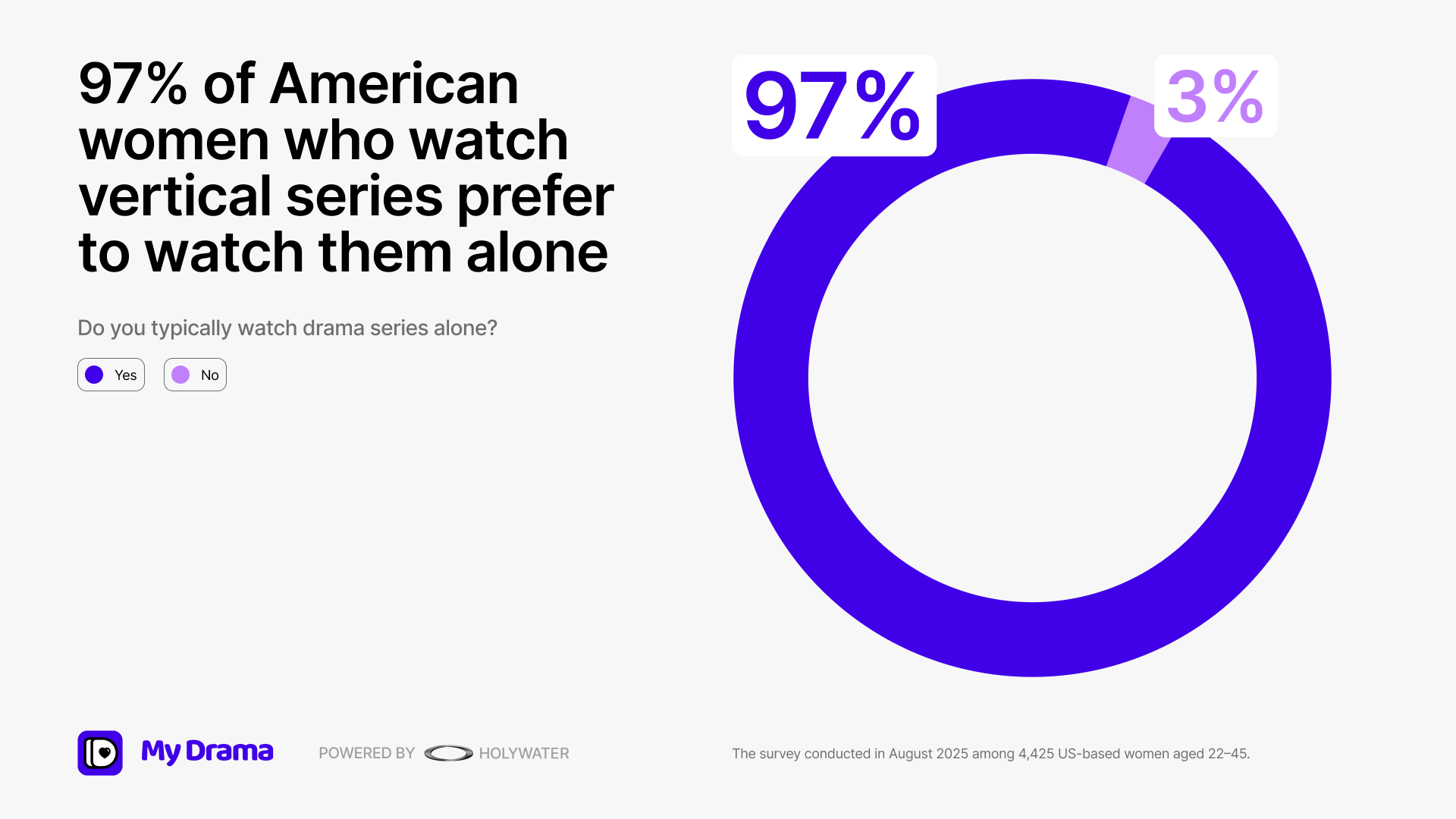
To support the previous point, most viewers (97%) watch vertical series on their own. That choice isn’t just about screen size or genre–it’s about personalization. Compared to My Drama user interviews: many respondents describe vertical series as a small daily reward, a “guilty pleasure,” and the perfect pause or quick reset after a long day.
Does watching vertical series help coping with stress?
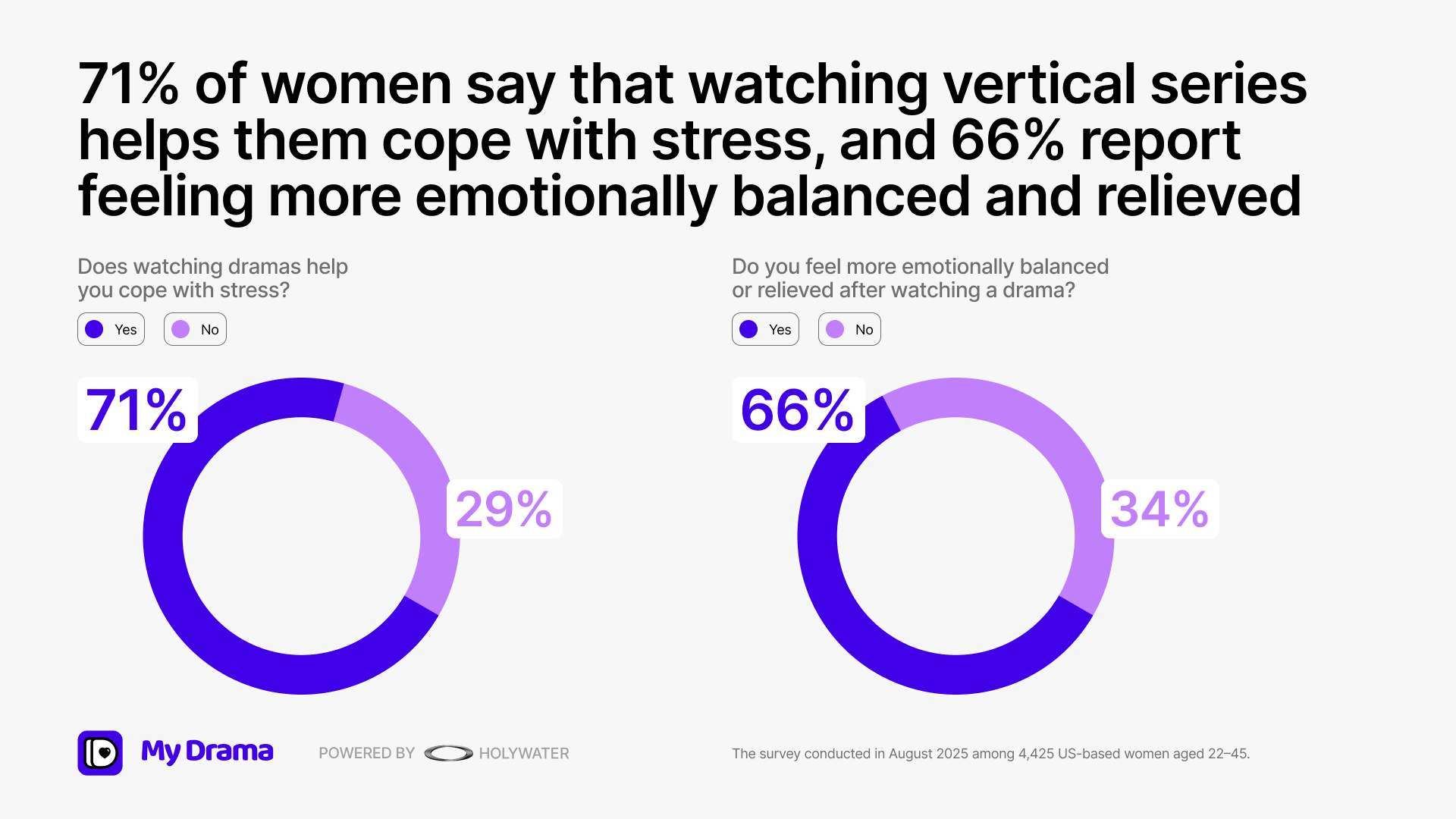
An astonishing 71% of women reported that watching dramas helps them cope with stress, while 66% reported feeling more emotionally balanced after watching. This number suggests that vertical series can actually become an outlet for releasing emotions or living through difficult situations in life.
Do vertical series help people process complex emotions?
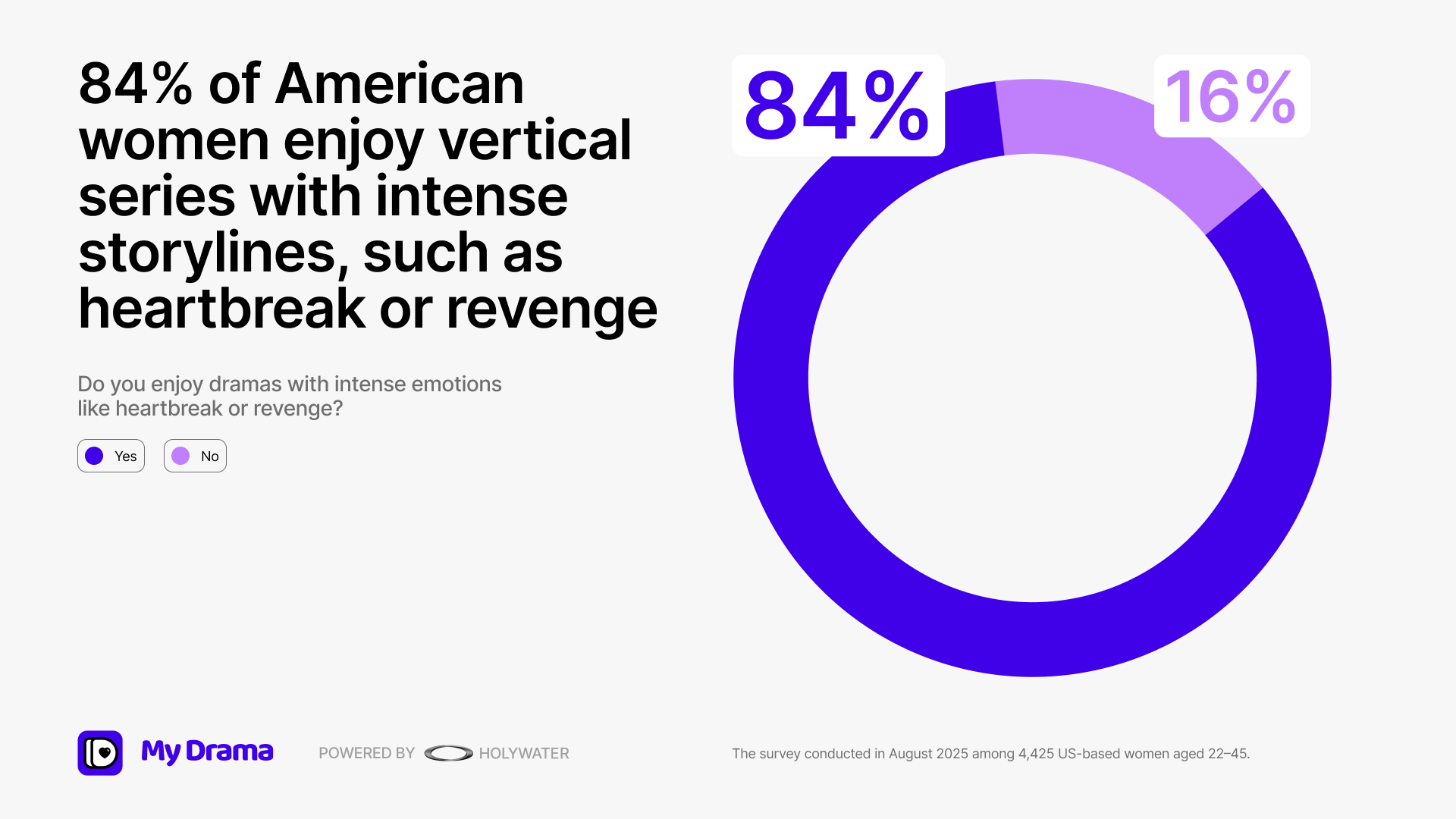
Diving deeper into the content specifics, we spotted that 84% of women enjoy vertical series with intense storylines and complex characters.
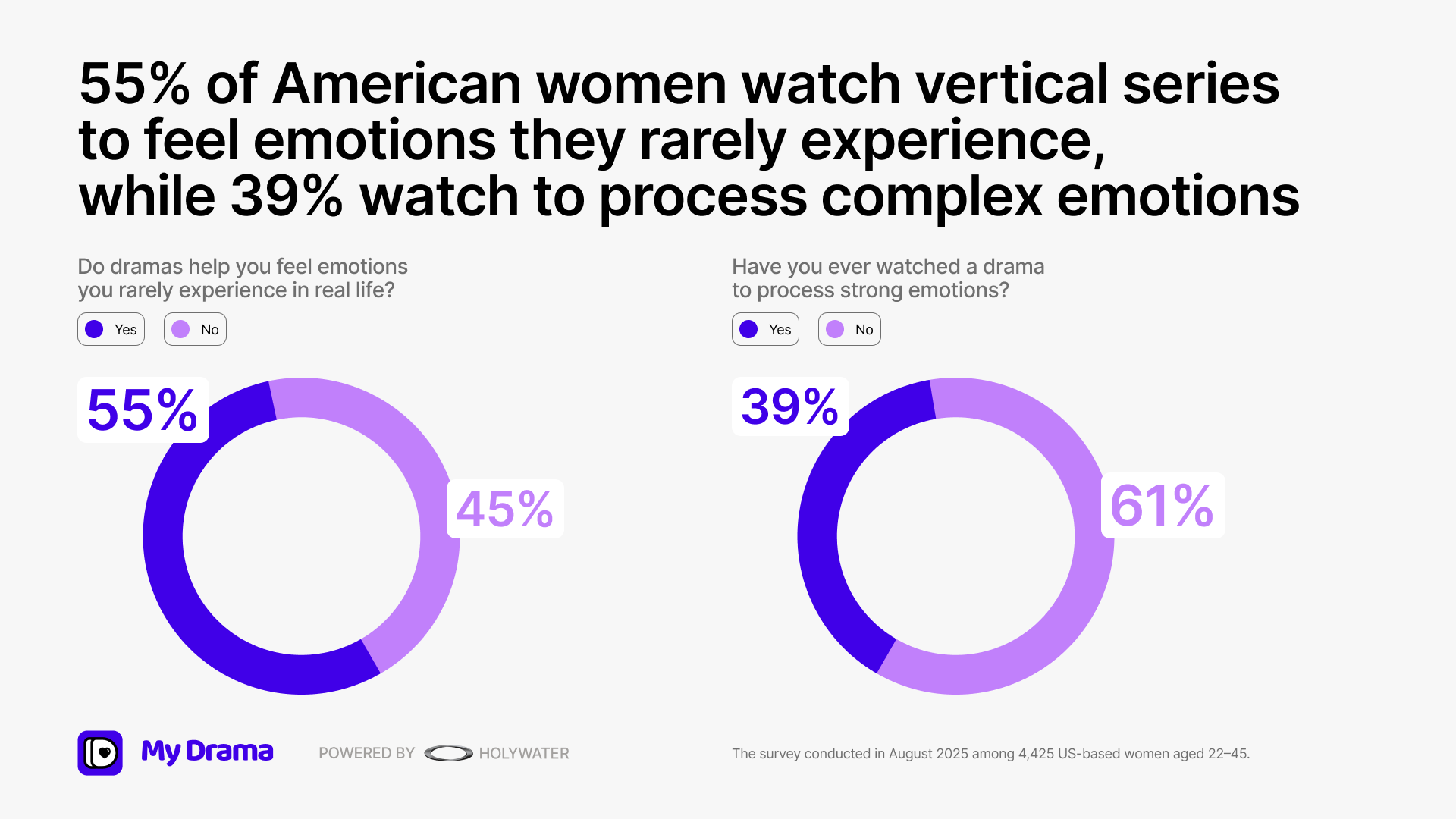
Vertical series thrive on high emotion and big stakes—and that’s part of their appeal. When that energy is channeled into a more cinematic, thoughtfully paced format, conflict arcs feel purposeful rather than excessive. In our survey, 39% of women said vertical series provide a safe space to process complex emotions, and 55% said they let them explore on-screen situations they might never encounter in real life
As Dr Morley admits: “Women aren’t watching intense storylines because they secretly want them; they’re watching because fiction gives them a chance to learn and rehearse what to avoid.”
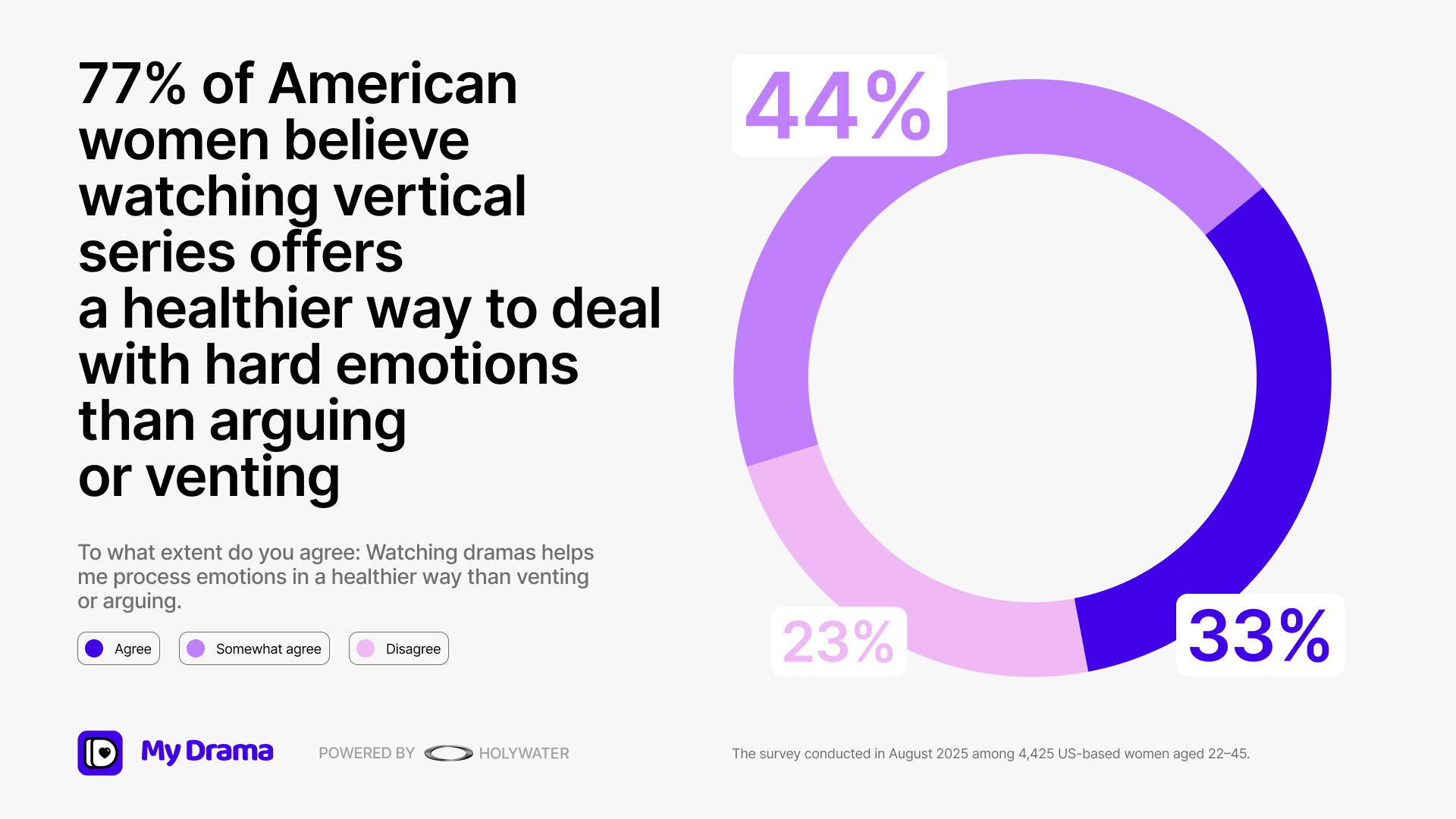
Then we’re moving to a more interesting subject: around 77% of viewers say that watching vertical series offers a healthier way to deal with emotions than arguing or venting.
Can vertical series help recognize red flags in real life?
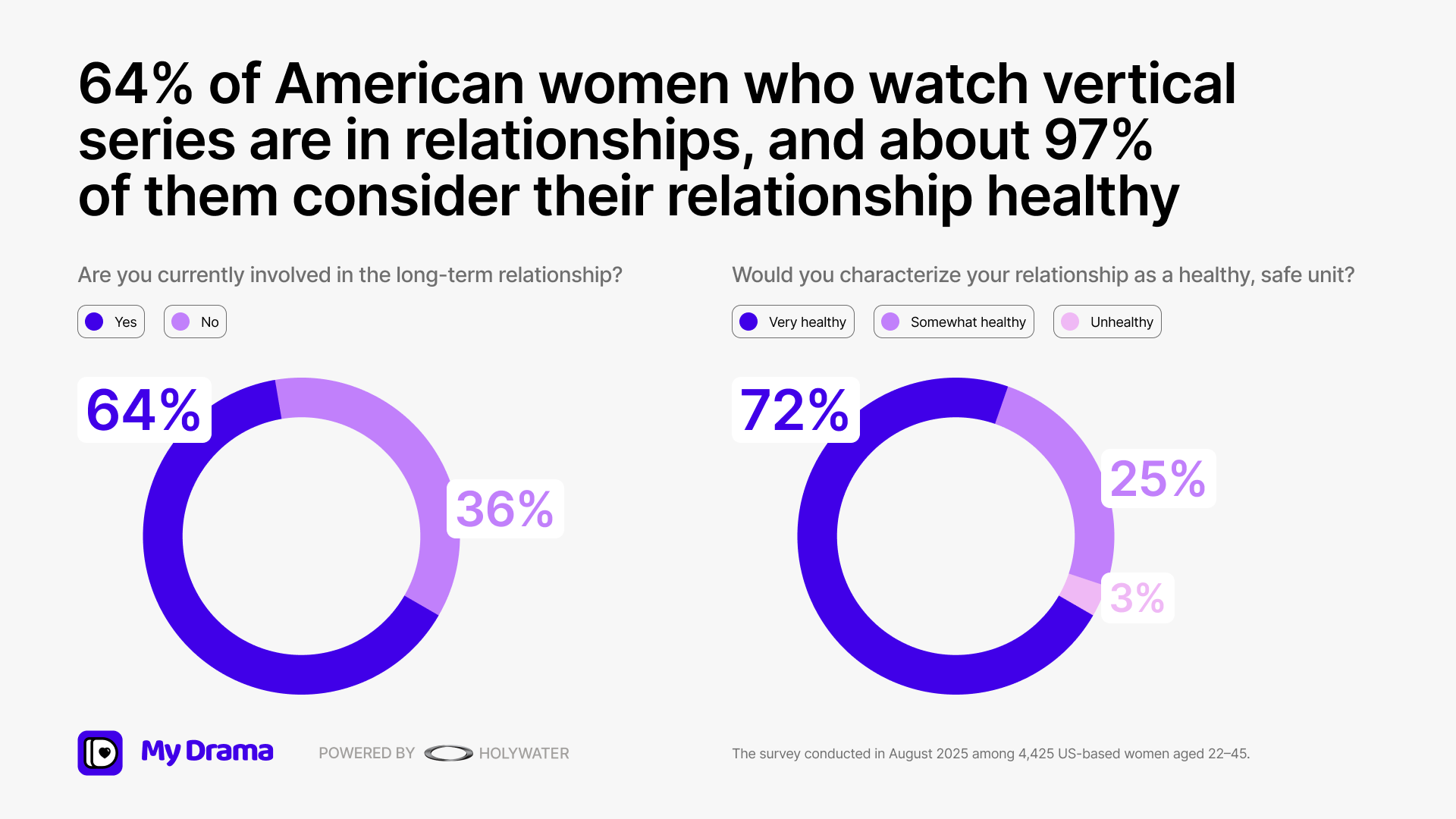
The survey shows that women don’t appear to be seeking out similar relationships, as they see on screen in their real lives. Indeed, among the 64% who stated they were in a relationship, 97% considered their relationship to be healthy.
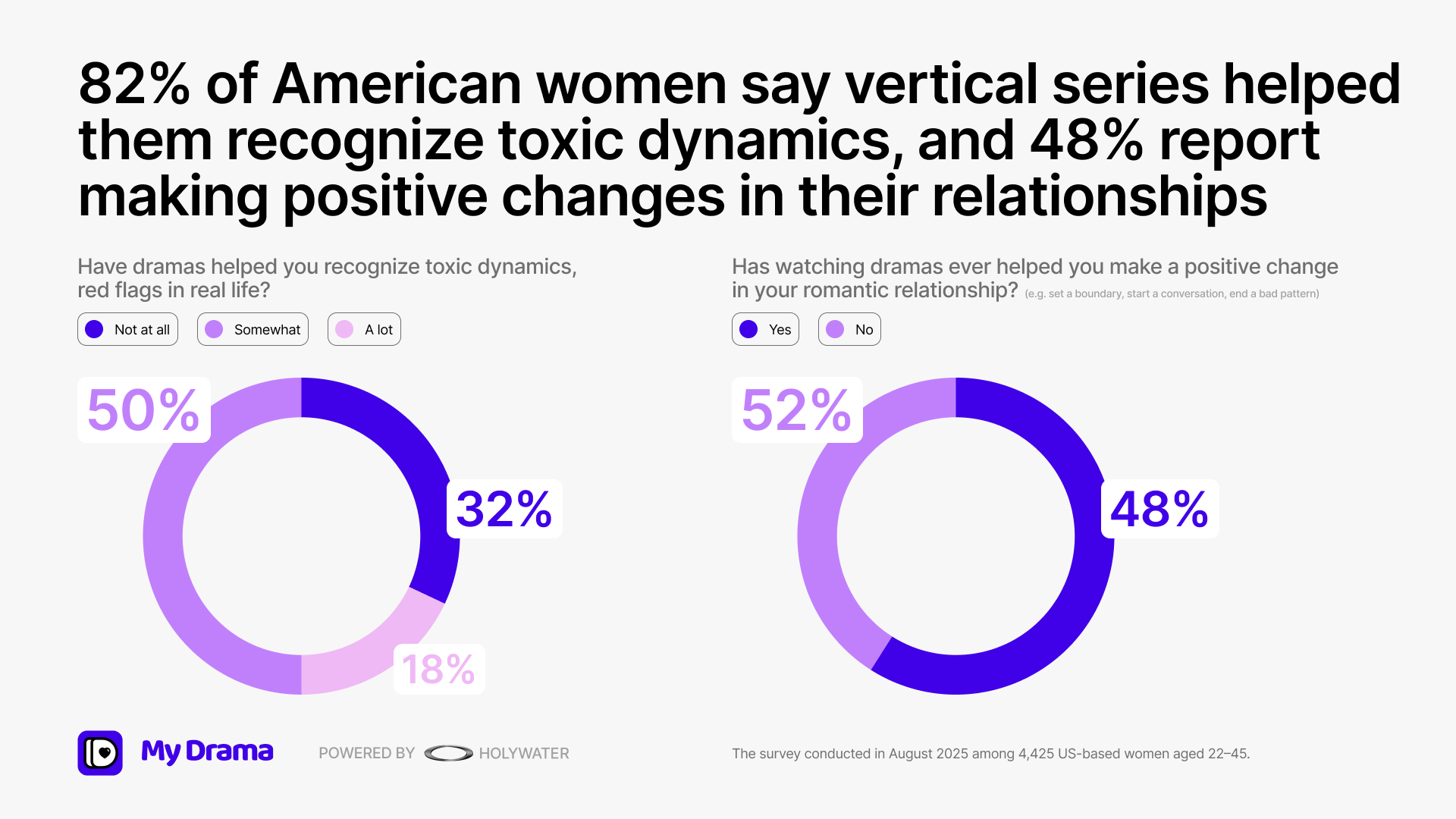
Dr Morley adds “In fact, survey results also showed that a whopping 82% of respondents felt that watching vertical series helped them recognize toxic dynamics, and 48% even stated they made positive changes in their relationships as a result.
Thus, instead of normalizing or fueling dysfunction, the survey suggested that drama-watching could be educating viewers, giving them a safe space to rehearse toxic relationships they’d like to avoid in real life, and prompting healthier choices as a result.”
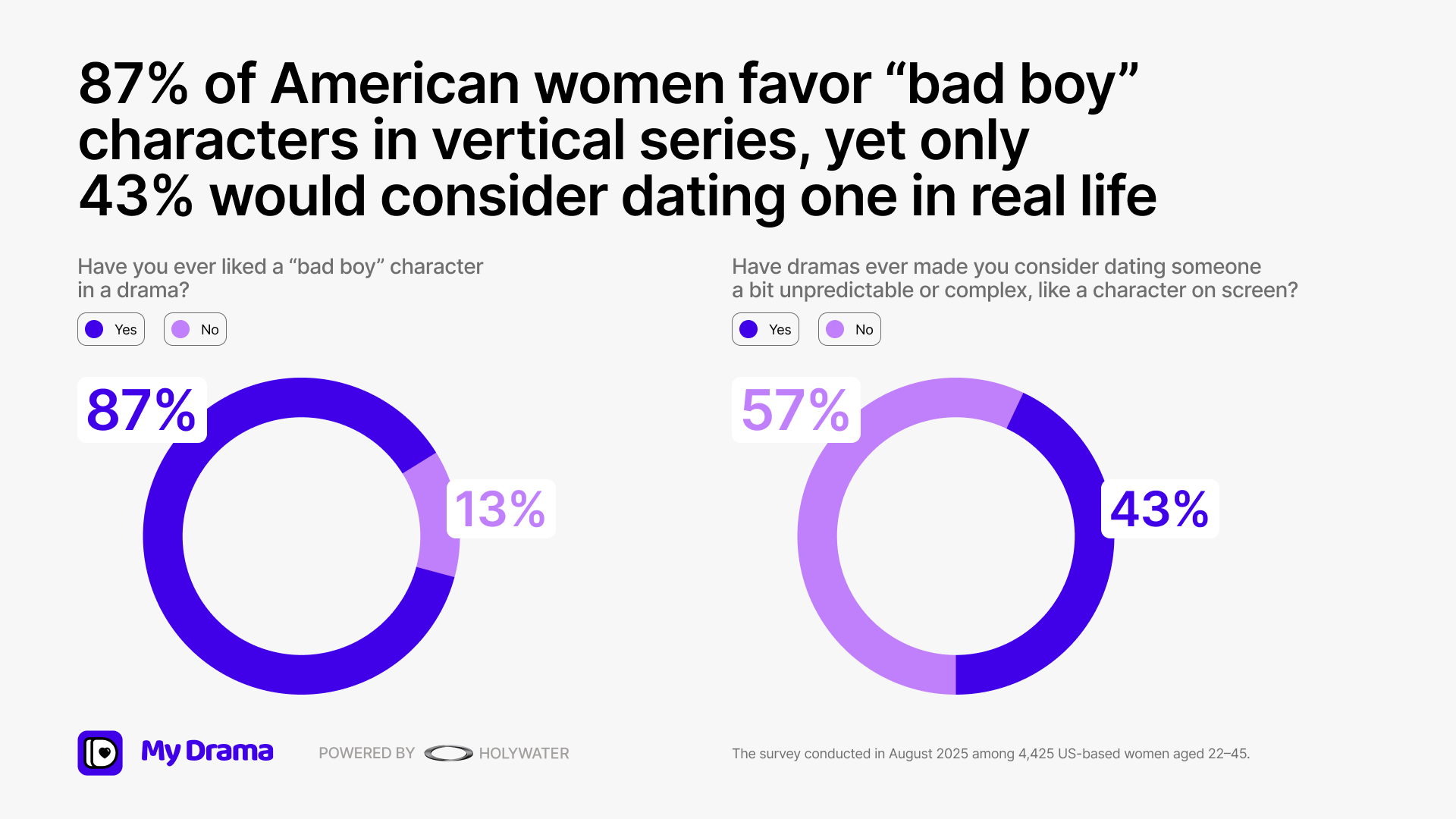
Remember how we always pick favorite characters from the shows? Many people are drawn to iconic antagonists—think the Joker in Batman or Cruella de Vil in 101 Dalmatians. They even earn their own films and spin-offs, because it’s compelling to explore what shaped them—and whether they can change. Verticals are no different from this scheme–87% of American women favor “bad boy” characters.
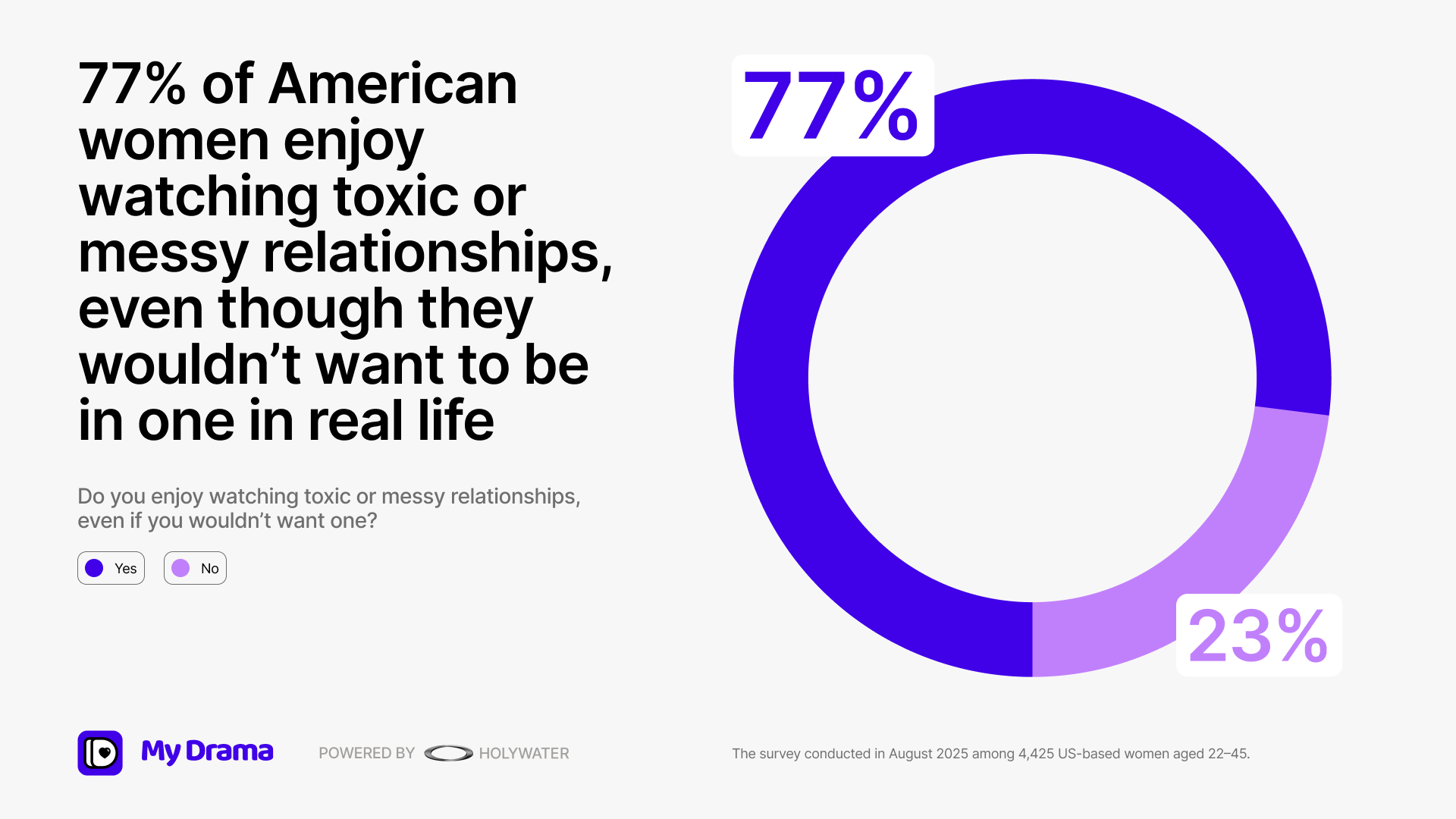
And coming to the tipping point: 77% of viewers enjoy watching messy relationships, even though they would want to be in on in real life.
Conclusion
“In this way, we can rehearse and “live” unhealthy relationships without having to actually endure them. Viewers can learn to recognize red flags more quickly. They can indulge in the fantasy of a toxic power-imbalance relationship without needing to experience it in real life. The dramas provide them with a cathartic space to experience intense emotions without personally having to suffer the psychological or relationship consequences of being in such relationships.”
These initial results suggest that dramas can be tools for reflection, rehearsal, and emotional growth. They are not necessarily scripts encouraging people to normalize bad behavior or enter toxic relationships. For women, these stories are less about craving pain and more about preparing for healthy love- learning when to walk away, and when to open up.












